Top 20 AI Tools for Social Media: From Creation to Analytics
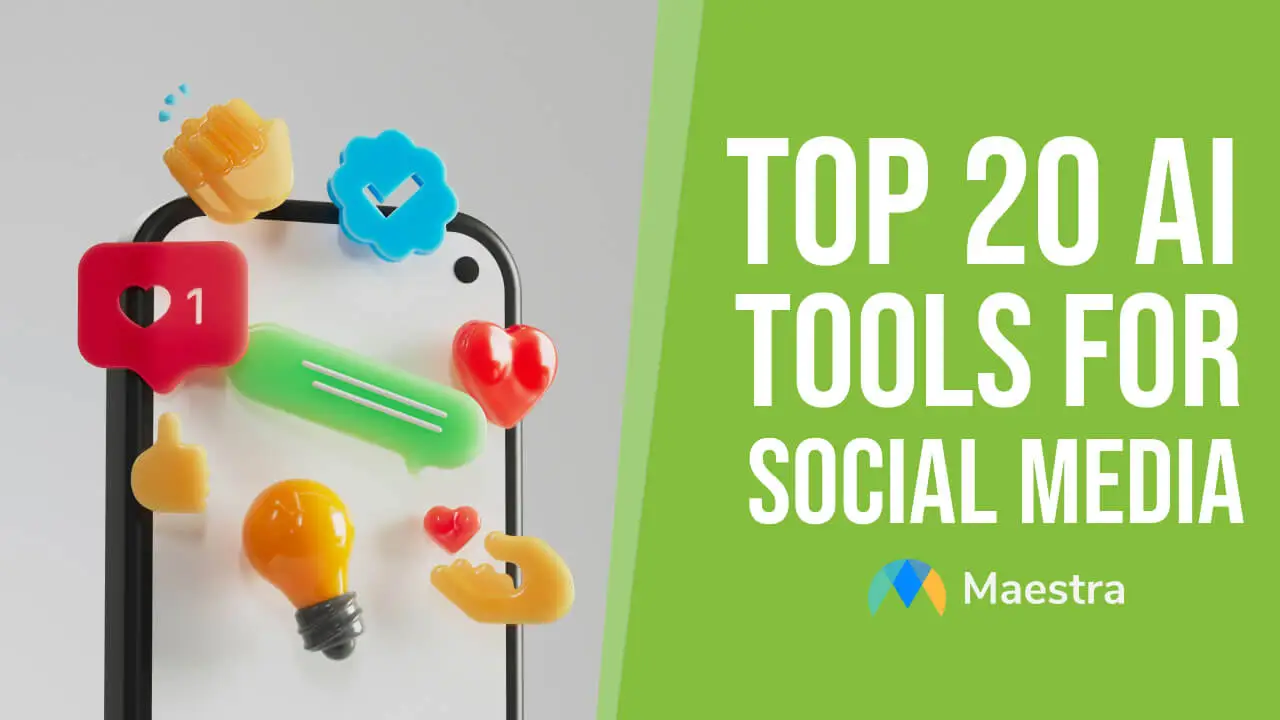
AI technology continues to reshape our lives with tools that revolutionize the way we perform daily tasks. One area that has been affected by AI is social media management. There are various AI tools for social media that can help you boost efficiency, creativity, and engagement while saving time and money.
In this blog post, we will:
- Define the areas where AI can be utilized.
- Explore the best AI tools for social media.
- Discover the benefits of AI in social media management.
An Overview of the Top 20 AI Tools for Social Media
| ⚙️ Tool | ✨ Key Features | 💸 Pricing Options |
| Maestra.ai | Video transcription, subtitling, and translation | Free trial; Paid plans start at $10/month. |
| Kapwing | Video editing with AI tools | Free plan; Paid plans start at $16/month. |
| Vidyo.ai | Creating short-form videos from long videos | Free plan; Paid plans start at $19/month. |
| ChatGPT | AI-generated text | Free plan (ChatGPT 3.5), Pro (GPT-4) $20/month |
| Copy.ai | AI-generated copy and templates for social media | Free plan; Pro $36/month |
| MeetEdgar | Automated post recycling and scheduling | Paid plans starting at $29.99/month |
| Rytr | Content creation for social media | Free plan; Paid plans start at $7.50/month. |
| Writesonic | AI-generated content | Free Plan; Paid plans start at $10/month. |
| Grammarly | Grammar and tone checker with writing suggestions | Free plan; Premium ($12/month) |
| Adobe Express | Editing, AI effects, and templates | Free plan; Premium ($9.99/month) |
| Canva | Drag-and-drop interface and extensive template library | Free plan; Pro ($12.99/month) |
| Fotor | Design templates, photo editing, and graphic creation tools | Free plan; Paid plans start at $8.99/month. |
| Flick | AI-driven hashtag suggestions and analytics | Starting at $14/month |
| RiteTag | Real-time hashtag suggestions and performance tracking | Free browser extension; Paid plans starting at $49/year. |
| Hootsuite | Scheduling posts, analytics, and team collaboration | Free plan; Paid plans start at $99/month |
| Sprout Social | Social analytics and engagement tracking | Starting at $249/month |
| Buffer | Scheduling posts, analytics, and engagement tracking | Free plan; Paid plans starting at $6/month per channel. |
| Brandwatch | Sentiment analysis and trend tracking | Custom pricing |
| BuzzSumo | Content discovery and influencer tracking | Free plan; Paid plans starting at $99/month. |
A table comparing the top 20 AI tools for social media.
AI for Social Media: Which Tools to Use
Here is a list of the best 20 AI-powered tools to help you with video editing, content writing, creating striking designs, choosing hashtags, and managing social media.
Video Editing, Localization & Automation
Videos are one of the best types of content, if not the best. There is no doubt that they are highly engaging. In order to benefit from this type of content, you need to make sure that your videos are impeccable. Here are the best tools to use for your video content:
1. Maestra.ai
Video localization is key to success when appealing to a global audience, and using Maestra will save you a great amount of time and energy while ensuring high quality.
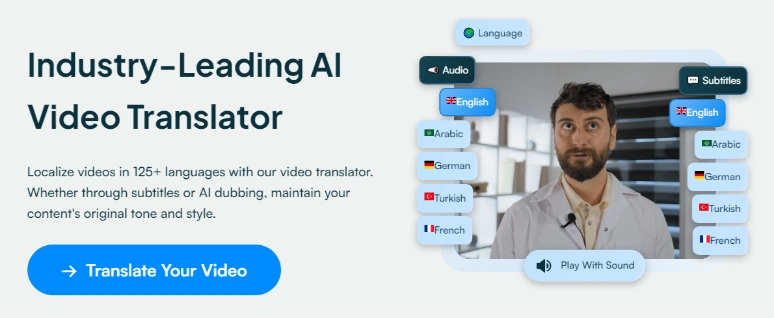
Maestra.ai offers multiple tools for video localization. You can transcribe videos, add subtitles, and create voiceovers in 125+ languages.
Maestra integrates with platforms such as Zapier, YouTube, TikTok, Slack, Zoom, OBS, and vMix so that you can automate tasks and improve your workflow efficiency with Maestra.
- Pros: Easy to use, multi-language support; integrations, automation, and collaboration.
- Cons: Limited advanced video editing features.
Generate subtitles and dub videos with just a few clicks.
2. Kapwing
Kapwing is an online tool you can use to edit your videos. It enables you to collaborate on projects in real time and allows you to create visually consistent content as a team by offering a shared space for brand assets and specialized templates.
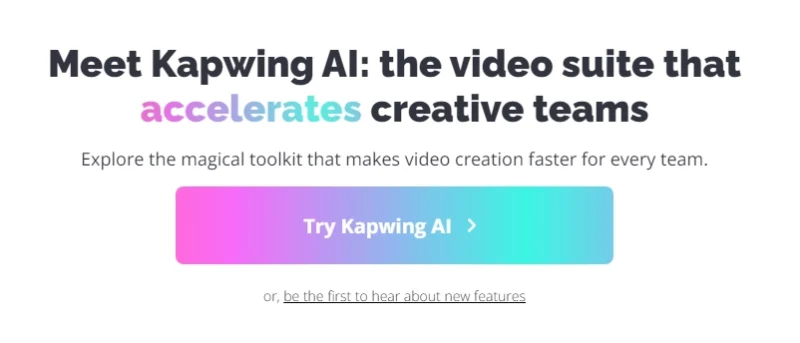
Kapwing also offers AI tools to streamline your video editing process. You can automate tasks and edit videos easily even if you don't know how to do so because Kapwing allows you to edit videos by removing parts from the transcript.
- Pros: Versatile editing tools and positive user experience.
- Cons: Watermarks in the free plan.
3. Vidyo.ai
Vidyo.ai allows you to create short-form content that is great for social media platforms using long videos. All you need to do is upload a video and wait for AI to create bite-sized clips.

Vidyo.ai offers ready-to-use templates for each social media platform. It also provides royalty-free stock images and videos for you to create B-roll footage.
You can resize your clips and share your videos across multiple social media platforms easily using Vidyo.ai. That's why Vidyo.ai is a great asset for video content creators.
- Pros: Easy video repurposing and ideal for short-form videos.
- Cons: Not suitable for detailed video editing.
Content Writing
While creating text-based content, there are crucial points you need to pay attention to such as the tone, relatability, and persuasiveness of your writing. Here are 4 AI tools for social media content writing:
4. ChatGPT
ChatGPt is an AI tool that produces conversation-based responses. You can use it for short-form content ideas or captions that will grab the attention of your audience.
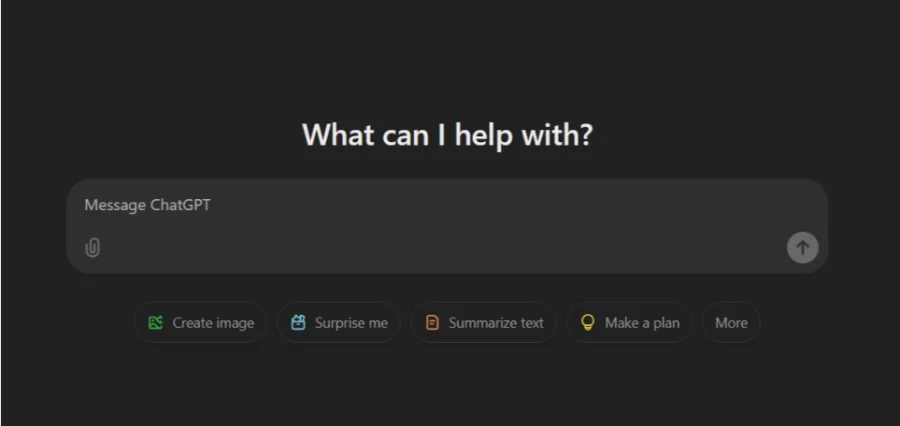
While you can use it for content generation, you can also have a conversation with ChatGPT to find inspiration.
- Pros: Versatile and inspirational.
- Cons: Needs guidance and not primarily a content creation tool for social media tool.
5. Copy.ai
Copy.ai generates marketing copy, blog posts, and social media captions. It also offers templates for social media, so when you need a little help with inspiration, you can use Copy.ai.
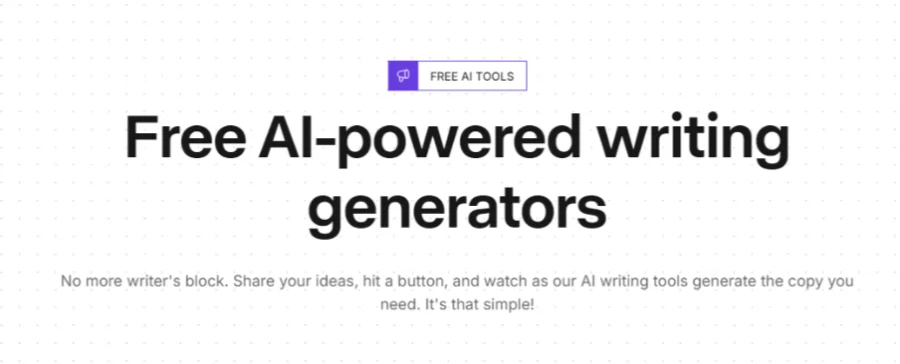
Copy.ai is great for both long-form and short-form content. It offers multiple tools powered by AI to help you find content ideas and perfect your sentences. You can get help with your hooks, titles, meta descriptions, calls to action, and many more.
- Pros: User-friendly and ideal for short-form content.
- Cons: Might produce repetitive outputs.
6. MeetEdgar
MeetEdgar is a social media scheduling tool designed to automate and recycle your evergreen content. It allows users to create a categorized content library and schedule posts on autopilot, ensuring your top-performing content gets reshared over time without manual effort.
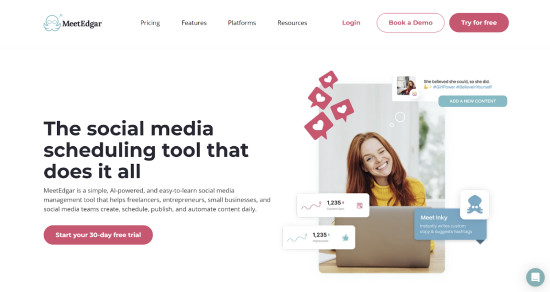
What sets MeetEdgar apart is its smart automation. You can set it and forget it—Edgar will pull from your content queue and fill in your schedule with posts that match your categories and timing rules. It also provides performance analytics so you can track what’s working and make data-informed decisions.
Pros: Content recycling, time-saving automation, and organized category scheduling.
Cons: Limited to scheduling (no social listening or deep analytics).
7. Rytr
Rytr is a content creation tool powered by AI. It can help you with creating new content or enhancing the existing ones. It offers templates for various use cases. That's why you can use Rytr to create content for your social media platforms.
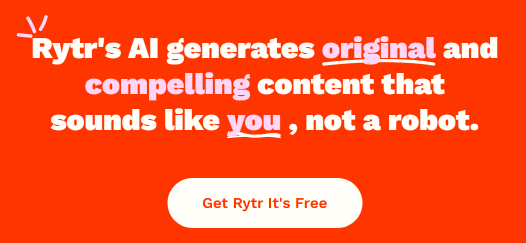
Rytr supports multiple languages and offers options to adjust the tone of your writing. It also analyzes your writing and copies your tone to create consistent-sounding copies.
- Pros: Affordable and user-friendly.
- Cons: Limited customization options and no integrations.
8. Writesonic
Writesonic is an AI writer that focuses on long-form content such as blog posts. But, you can use it to generate social media captions or product descriptions. It offers templates for social media platforms such as LinkedIn, Instagram, and Facebook.
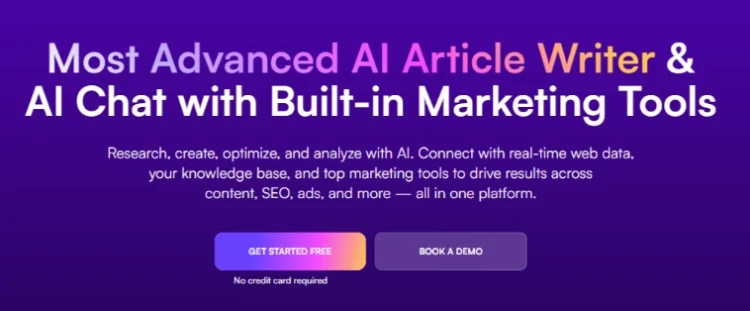
Writesonic enables you to reach a wide audience with its multilingual support. You can also achieve consistency for your brand across various platforms with it because Writesonic allows you to customize tone and style.
- Pros: Versatile, multi-language support, and easy to use.
- Cons: Might produce repetitive outputs and might require fact-checking.
9. Grammarly
Grammarly is an AI writing assistant. You can use it to refine your writing. It integrates with browsers and other tools to streamline your writing process.
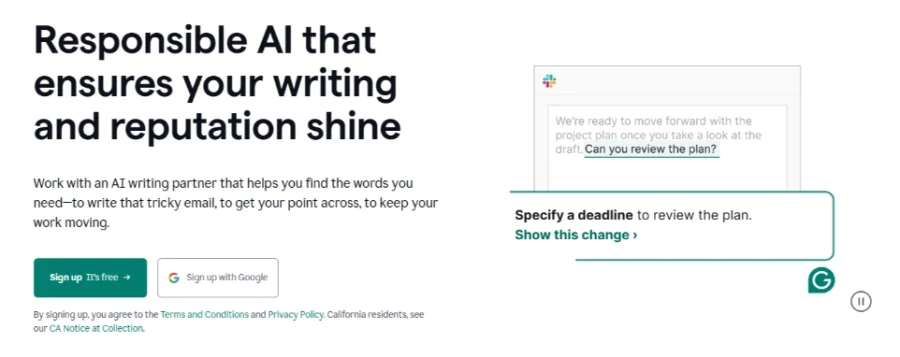
Grammarly provides suggestions to clarify your text and enhance the tone. You can set goals while writing so that Grammarly can help you achieve your goals regarding the audience and tone.
- Pros: Grammar and style corrections and integrations.
- Cons: Limited creative writing assistance and premium features are behind a paywall.
Visual Design for Social Media
To be successful on social media, you need to make sure that your posts are eye-catching. Even if you are posting a text, you need to create a social media design that grabs attention and reinforces your brand identity. Here are tools to use for design:
10. Adobe Express
Adobe Express helps you create eye-catching visuals effortlessly. It simplifies graphic design and offers various fonts and templates. That's why it is ideal for creating branded content.

Adobe Express is powered by AI, and it can generate images, music, and voiceovers with one click. While editing images, you can remove backgrounds, crop, and resize easily.
- Pros: High-quality templates and branded content creation.
- Cons: Fewer customization options.
11. Canva
Canva is a graphic design tool that offers basic AI features. It offers various templates and allows you to create designs by dragging and dropping. It is ideal for infographics, Instagram carousels, and branded posts.
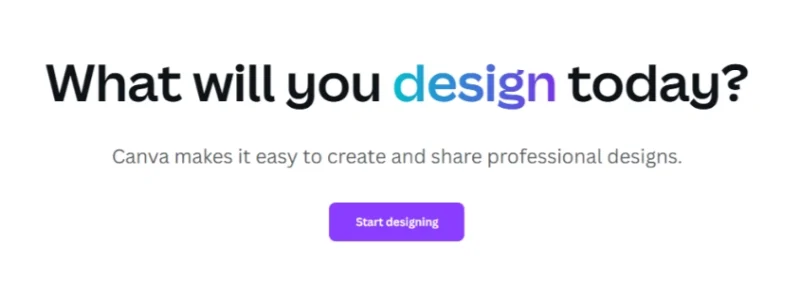
Canva uses AI to create texts and edit photos instantly. Simply click on the area you want to change on your photo and enter your prompt for Canva to transform your photos.
- Pros: Vast template library and ideal for beginners.
- Cons: Limited advanced design features and premium features require a subscription.
12. Fotor
Fotor is an online photo editing tool. It enables you to make basic adjustments like brightness and contrast and also offers advanced editing features.
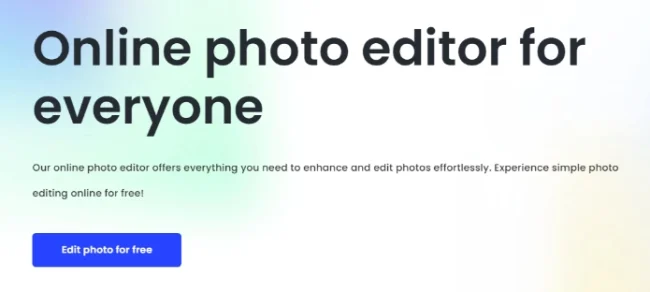
You can remove backgrounds and remove objects from photos effortlessly with Fotor. It also provides high-quality stock photos for you to use and offers an AI image generator that creates images from prompts.
- Pros: Easy to use and simple designs.
- Cons: Lacks advanced features when compared to other design tools
Hashtag and Trend Optimization
Hashtags are essential for increasing discoverability. Following trends and creating content related to trending hashtags is a great way to reach a wider audience. Here are the tools that can help you with hashtag optimization:
13. Flick
Flick is an AI-powered tool that helps social media managers with scheduling, hashtags, caption writing, and analytics. It enables you to create a library of hashtags that perform well and use them again with one click.
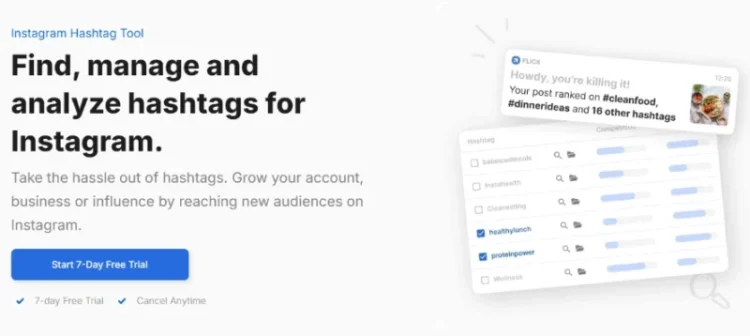
Flick focuses primarily on Instagram, and it supports multiple languages. You can find relevant hashtags, track your hashtag performance, and enhance your reach with Flick's on-point suggestions and analytics.
- Pros: Performance tracking, hashtag suggestions, and user-friendly.
- Cons: Limited focus beyond Instagram hashtags.
14. RiteTag
RiteTag is a quite useful tool for finding trending hashtags. It can provide hashtag suggestions for the images or texts on any website.
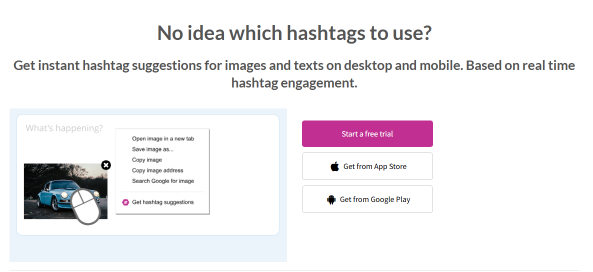
RiteTag allows you to group hashtags together and easily access them for later use. It also integrates with social media platforms and social media management tools to streamline your workflow.
- Pros: Real-time hashtag suggestions and integrations.
- Cons: Limited analytics compared to competitors.
15. All Hashtag
All Hashtag is an easy-to-use hashtag generator. It also offers analytics, so you can benefit from this tool if you want to improve your reach with optimized hashtags.
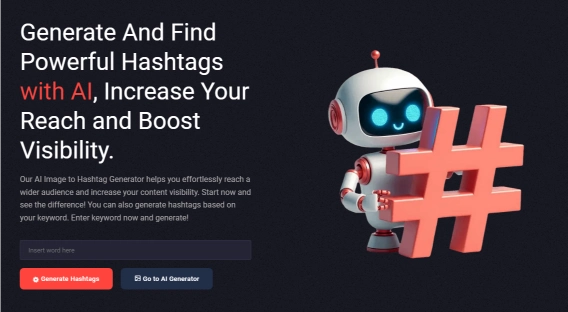
All Hashtag can generate a list of hashtags based on keywords or images. It also counts the number of hashtags in your post to make sure that your content has the optimal number of hashtags for the specific platform.
- Pros: Free, quick, and user-friendly.
- Cons: Limited analytics and no advanced features.
Social Media Management & Analytics
Social media management requires a great amount of work. This workload can be difficult to manage especially if you are active on multiple platforms and you need to post consistently. That’s why AI tools for social media management can be extremely helpful.
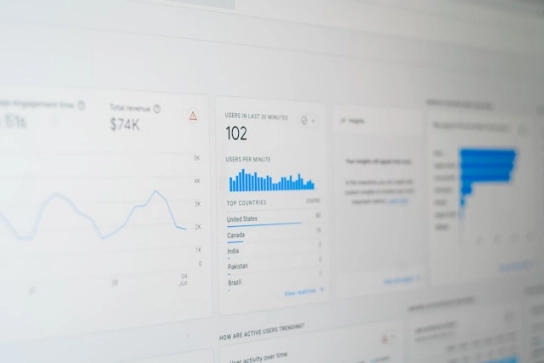
When it comes to examining analytics, it is one of the most important parts of every person dealing with social media to promote their brand. AI tools that track your success, provide insights into your competitors, and analyze audience behavior are crucial for achieving success.
Here is how to optimize your social media strategies using AI tools:
16. Hootsuite
Hootsuite is one of the best social media management tools. It enables you to schedule social media posts, create content, collaborate, and analyze your performance. You can also discover trends and find out the best time to post according to your audience.
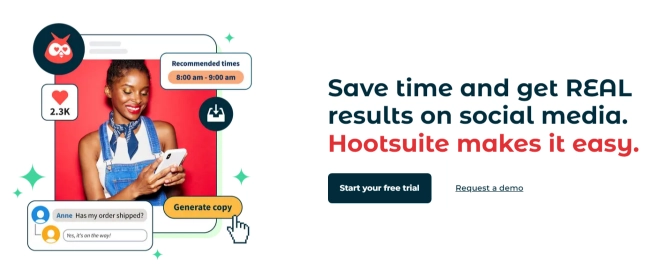
Hootsuite offers an AI tool that can help you with ideation and creation. You can use this tool for captions and repurposing your existing content. After your content is ready you can schedule your posts to achieve consistency and boost engagement.
- Pros: Multi-language support and detailed analytics.
- Cons: Free plan is limited and paid plan might be expensive.
17. Sprout Social
Sprout Social is another all-in-one tool for social media managers. You can use it to automate tasks, collaborate with your team, and optimize your content.

Sprout Social offers every tool you need while managing social media, and it is a great tool for managing campaigns because it determines the ideal time to post, schedules your posts, provides analytics, crafts captions, and offers audience engagement tools.
- Pros: Collaboration, detailed analytics, and customer support features.
- Cons: Might be expensive for small businesses.
18. Buffer
Buffer can help you create content, boost engagement, streamline your workflow, and collaborate with co-workers. It especially stands out with its audience-building tools.
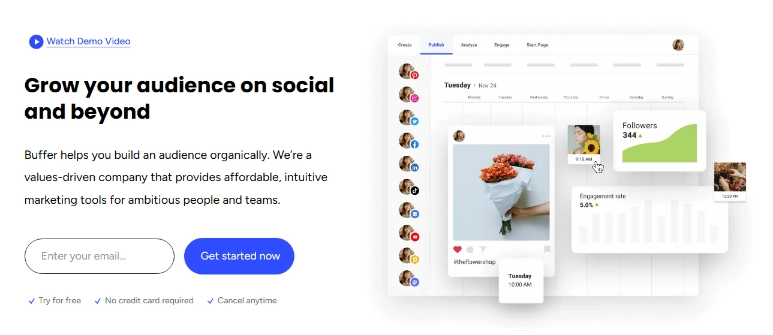
You can see the latest and most important comments and answer them easily using the dashboard. What's more, Buffer uses machine learning to analyze comments for your posts and notifies you when a post raises questions, has negative sentiments, or initiates a purchase.
- Pros: Tracks engagement and schedules posts.
- Cons: Limited analytics compared to competitors.
19. Brandwatch
Brandwatch is an analytics tool. It provides insight into trends, your brand reputation, and audience sentiment. It primarily focuses on customer opinion, and with the analytics it provides, you can discover new trends and make smart decisions.
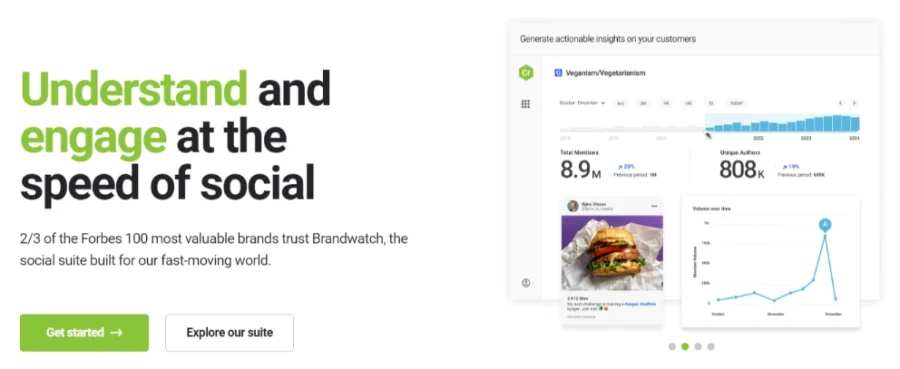
Brandwatch provides you with a social inbox and enables you to manage multiple channels from one place. It also offers visual reports and customizable dashboards for you to follow your KPIs.
- Pros: Advanced social listening and customizable reports.
- Cons: Might be complex for new users.
20. BuzzSumo
BuzzSumo is another analytics tool. It helps you discover trends and monitor your performance. You can use BuzzSumo for content discovery: It not only provides insights into trends but also filters them by type and social media platforms.
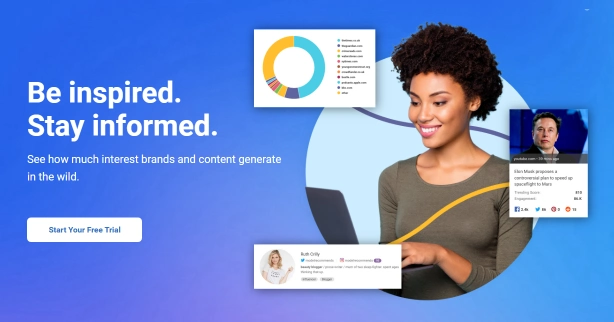
You can also use BuzzSumo for influencer marketing. It identifies influencers who might help you promote your content.
- Pros: Trend discovery, analysis, and influencer marketing.
- Cons: Free version is limited.
Frequently Asked Questions
Which AI tool is best for social media posts?
It could be difficult to choose the best AI tool for your social media posts because there are various options. While an all-in-one social media management tool can provide numerous benefits, determining the best tool depends on your specific needs such as creating content, hashtag optimization, designing visuals, or monitoring success.
Can AI create social media content?
Yes. Generative AI models can create text-based or image-based outputs with prompts. You can also use conversational AI to ask for suggestions on trends, themes, captions, or taglines.
What AI is used in social media?
Various AI models can be used while dealing with anything related to social media and trends. For example, Natural language processing (NLP), computer vision, and machine learning are among the most popular AI models used in social media management. Natural Language Processing models can be used for sentiment analysis while machine learning powers predictive analytics. And, design tools can use computer vision technology.